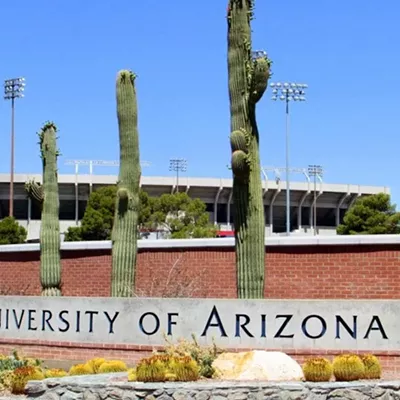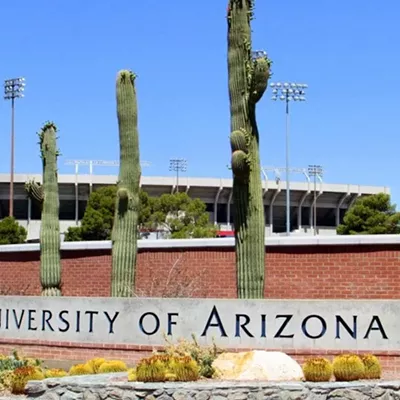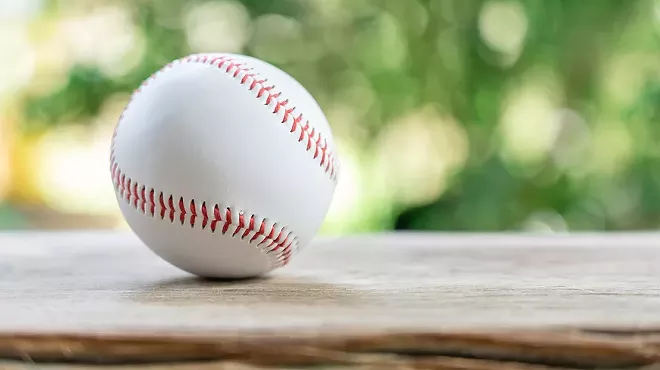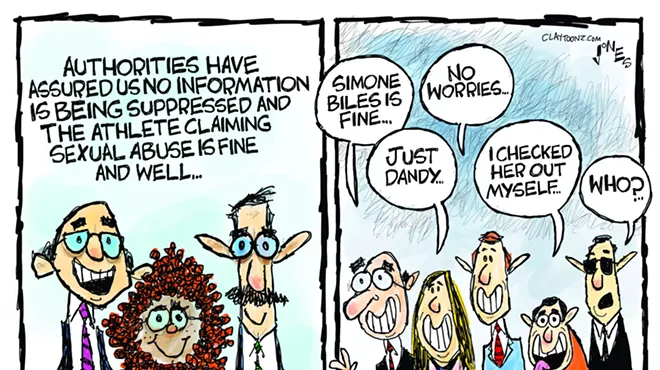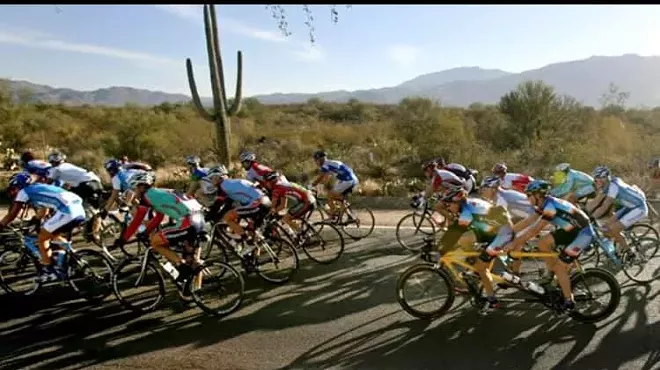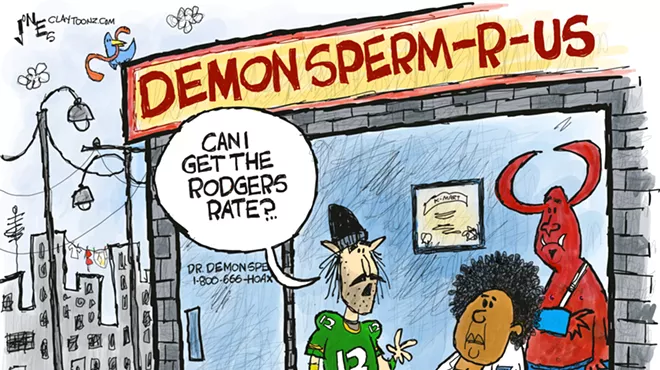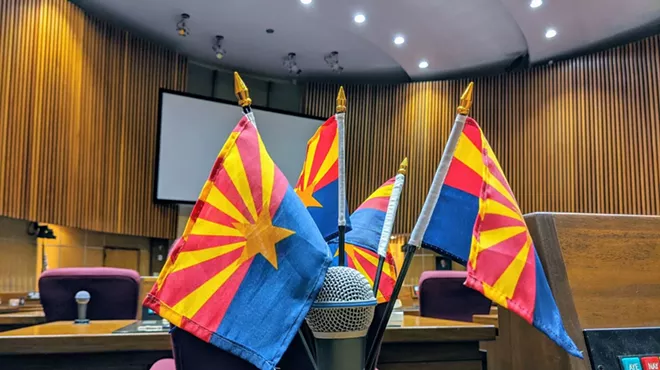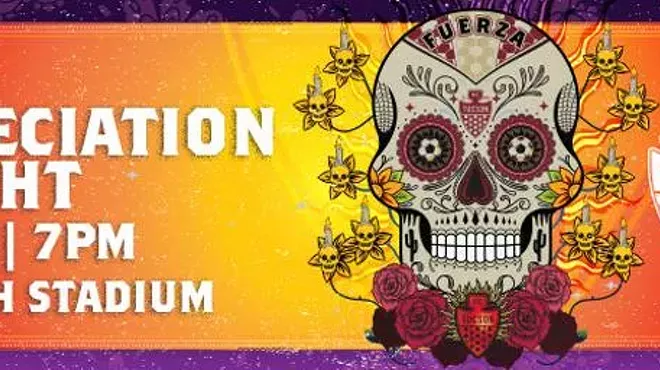Friday, March 21, 2014
UA Marches Toward Sports-Obsessed Madness

- Photo by Jim Nintzel
Coach Sean Miller is getting $3 million to run a minor league NBA farm team at the University of Arizona. It must be pretty important work to be worth all that money. And since the compensation comes from one of our major institutions of higher learning, college athletics must be good for higher education and the society at large. Right?
I mean, why else would universities involve themselves in such expensive, time consuming activities that have no direct relationship with the mission of the schools?
Here’s a heretical thought, especially as the NCAA tournament begins and Tucson is in the throes of March Madness. Is it possible that this form of entertainment, so beloved by college students, sports fans and television networks, could be a net negative for our colleges and society at large? Could the negatives spill over to our high schools, which act as farm teams for the colleges?
Before I continue, let me admit I exaggerated a bit. Coach Miller won’t make $3 million unless the Wildcats win it all. Otherwise, he may end up with more like $2.5 million. And college teams aren’t actually minor league teams. They have no direct connection with NBA teams that I know of, and the players don’t make any money.
Instead of going on a long rant about the possible negatives of our high visibility, high cost, high profit college sports — and the high school sports programs which supply colleges with players — let me ask some open-ended questions. Then I’ll slip quietly away (possibly to an undisclosed location for a few weeks) and let people talk among themselves.
1. What is the educational rationale for institutions of higher learning devoting so much money, time and energy to gigantic, costly sports programs?
2. When we compare our college and high school students unfavorably to students in other countries, why do we rarely mention that those countries don’t make a fetish out of school-based athletics, that at most they provide “Let’s have fun” intramural sports, and students who want to take sports seriously join private clubs? Could the distractions caused by our overemphasis on school sports be a contributing factor to many U.S. students’ lack of seriousness about their academic achievement?
3. Why should some high school graduates be admitted to institutions of higher learning (actually courted and recruited by colleges and universities) because of their athletic skill even when they would not have been accepted based on their academic records?
4. Can college athletes be expected to take full advantage of their educations when they spend so many hours working themselves to exhaustion to perfect their athletic skills and are told they must devote themselves heart and soul to their team?
5. Are we perpetuating destructive racial stereotypes among college students by having large numbers of African American athlete-students on campus who often aren’t at the same academic level or as serious about their educations as other students, who are there because they're big, strong and athletic?
6. If it’s good to have greater racial diversity on campuses, including a significant number of African American students, wouldn’t it make sense to actively recruit African American high school graduates who show a great deal of academic potential and are devoted to academic achievement rather than students who have spent a major portion of their lives perfecting their athletic skills? Wouldn’t those serious, hard working students, many of whom have no special athletic gifts, help dispel destructive racial stereotypes among college students? And wouldn’t they be more likely to graduate college with academic skills which will prepare them for professional careers in fields where African Americans are under-represented?
7. Isn’t it a cruel lie to encourage young people to believe they have a good chance of earning a living in sports when their college careers are over when in reality only a small fraction of them ever make it to the pros, and those who either don’t graduate or are given diplomas for worthless majors created especially for athletes end up with little to show for their efforts but dashed hopes and sports-related injuries?
Enjoy the NCAA tournament, everyone. But once it’s over, you might ask yourself if your entertainment comes at an educational and societal cost.
Tags: University of Arizona , college basketball , NCAA tournament , March madness , Sean Miller




